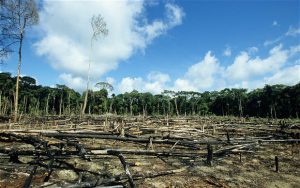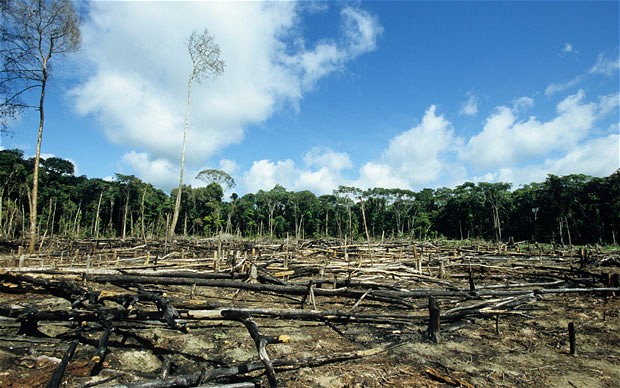Melting glaciers, coral reef death, wildlife disappearance, landscape alteration, climate change: our environment is transforming rapidly, and many of us are experiencing a sense of profound loss.
Now, the scientists whose work it is to monitor and document this extraordinary change are beginning to articulate the emotional tsunami sweeping over the field, which they’re naming “ecological grief”. Researchers are starting to form support groups online and at institutions, looking for spaces to share their feelings. I talked to some of those affected.

Steve Simpson
Professor of marine biology and global change at the University of Exeter
What changes have you personally seen that have affected you?
I studied marine biology 20 years ago, when it was a celebration of natural history. In the period of my career, it’s changed in front of our eyes. Every year, we went to Lizard Island, Australia, to a protected marine reserve in the Great Barrier Reef, and that was our reference for what coral reefs should be like: dazzling places, full of life. A quarter of all marine species live on coral reefs, which only make up about 0.1% of the ocean surface. They’re rainforests of the sea.
When we went back to the Great Barrier Reef after a major bleaching event in 2006, it had turned into a graveyard. It looked weird, because the fish were still brightly coloured, like someone had gone in and painted them on an otherwise black-and-white photograph. It was completely devastating to see individual corals that we knew and loved and had spent so long studying, now dead.
I’d just recruited a PhD student to study fish behaviour, and between the time of recruiting him and getting out for the first field season, the Great Barrier Reef died – 80% of the corals where we work were gone, and most of the fish that lived there also moved on. I told him in the interview that his visit was going to be this most wonderful experience, and it was just a tragic graveyard of historic coral reef life.
How have you been dealing with it?
We come back from our field seasons increasingly broken. You can either think: I can’t do this, I’m going to have to change the science I do; or you might try to internalise all of that pain that you feel. Lots of scientists do the latter – they feel we should be objective and robust, not at the mercy of our emotions.
Increasingly, we’re realising that we can use that emotional response to form new questions. Working on the bleached and dying coral reefs is enormously important to understanding how those environments are changing. There is a real urge to want to do something about it, rather than just chart the demise. And that’s where our research is heading now. We’re trying to restore some coral reef communities, or a fishery, or replant a mangrove forest. We’re just trying to find ways of protecting pockets of really diverse, vibrant life, which might reseed much larger areas when we tackle the big issues.
Any advice to others experiencing ecological grief?
It’s really important that we find ways of communicating the grief that we’re feeling and work together to support each other. Then we can become stronger, we can start to develop the science that takes our knowledge and turns it on its head – turns it into a solution, rather than just a negative story.
I think that finding any way of fostering a love of the natural world in the next generation is critical for them to be part of the solution.
Read more: The Guardian




